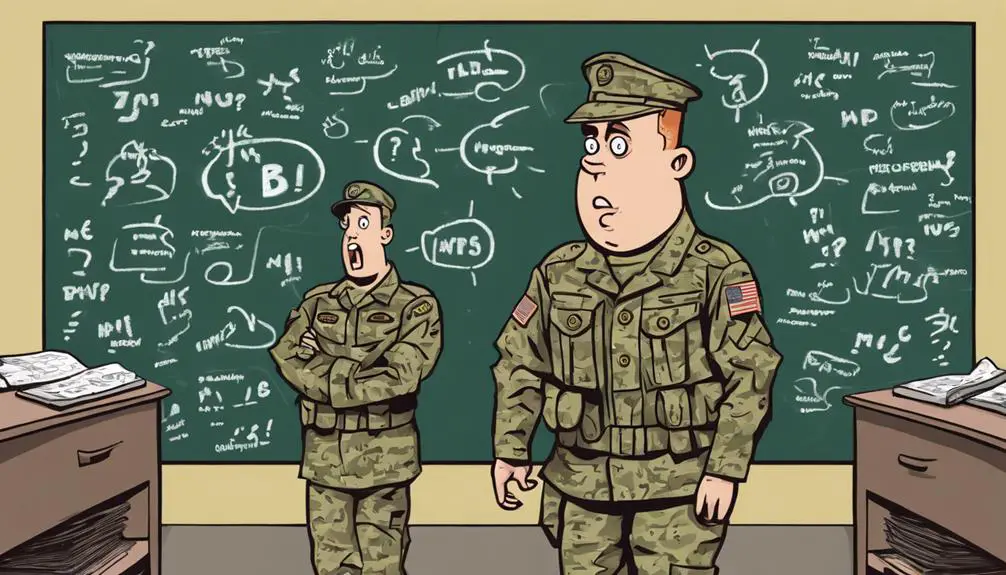Stepping into the military, you'll quickly realize that understanding the unique language and slang is vital to maneuvering your new environment. You'll hear terms like 'boot' or 'FNG' (Freaking New Guy) to describe new recruits. Learning phrases like 'Gear up' and 'Saddle up' to indicate mission or training preparation is important. Acquaint yourself with ranks and roles, like 'NCO' (Non-Commissioned Officer) and 'CO' (Commanding Officer). Mastering military slang will help you communicate effectively and earn respect from your peers. As you continue, you'll discover more nuances of military jargon, and it'll become second nature.
Essential Slang for New Recruits
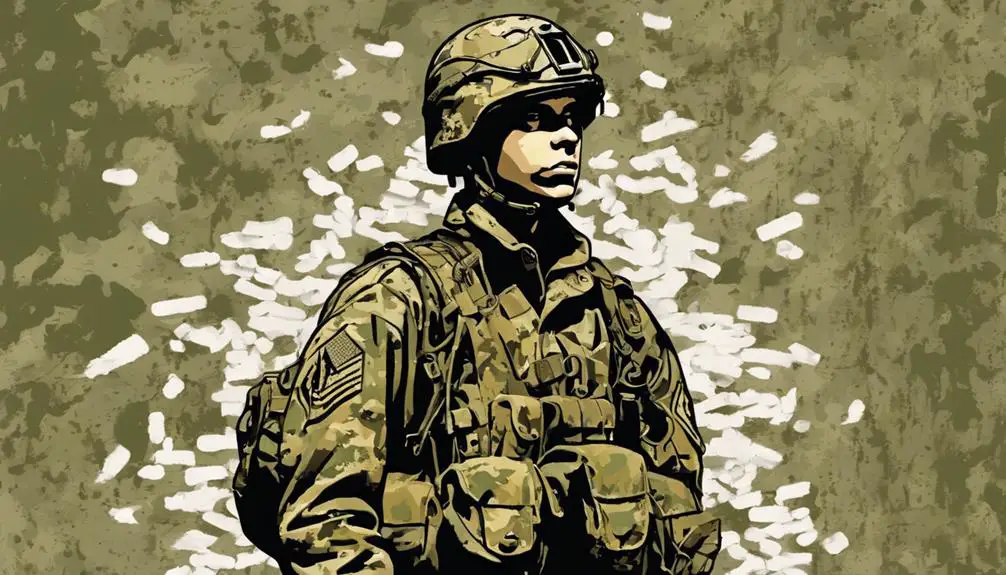
As you step into the military, you'll quickly realize that understanding essential slang is important to maneuvering your new environment effectively. Boot camp basics are vital to getting familiar with military lingo 101. You'll hear terms like 'HOOAH' (a enthusiastic expression of approval) and 'Oorah' (a Marine Corps battle cry). You'll learn that 'SITREP' means Situation Report, and 'ROE' stands for Rules of Engagement. Mastering these basic terms will help you navigate everyday conversations with your comrades and superiors.
In military lingo 101, you'll discover that 'PT' means Physical Training, and 'CHU' is a Containerized Housing Unit (your living quarters). You'll learn to identify military ranks, like 'NCO' (Non-Commissioned Officer) and 'CO' (Commanding Officer). Familiarizing yourself with these essential slang terms will help you communicate effectively and avoid confusion. By grasping these basics, you'll be well on your way to speaking like a seasoned veteran.
Common Phrases on Base
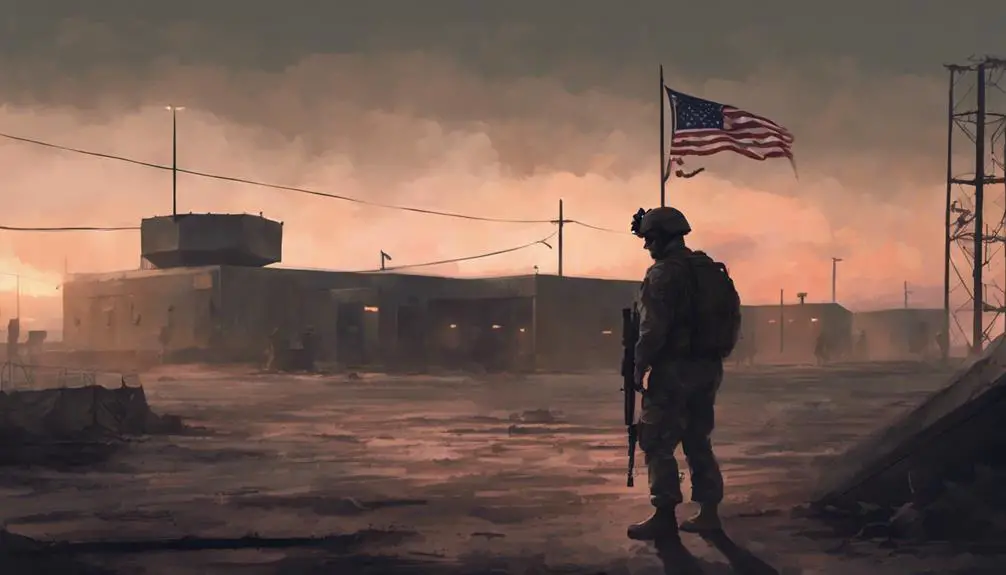
When moving around the base, you'll frequently hear phrases like 'Gear up!' or 'Saddle up!' which signal it's time to prepare for a mission or training exercise. These phrases are deeply rooted in military lingo origins, dating back to the early days of cavalry units. Understanding these phrases is essential to maneuvering base etiquette and avoiding confusion.
You'll also hear 'Fall in!' or 'Fall out!' which indicate the start or end of a formation or assembly. 'At ease' means you can relax, while 'Attention' demands you stand up straight and silent. 'Dismissed' releases you from duty, and 'Carry on' means you can return to your tasks.
On base, you'll encounter many more phrases like these, each with its own specific meaning and purpose. Mastering this military slang will help you fit in and avoid misunderstandings. Remember, understanding these phrases is key to respecting base etiquette and showing respect for your fellow service members.
Deciphering Military Jargon
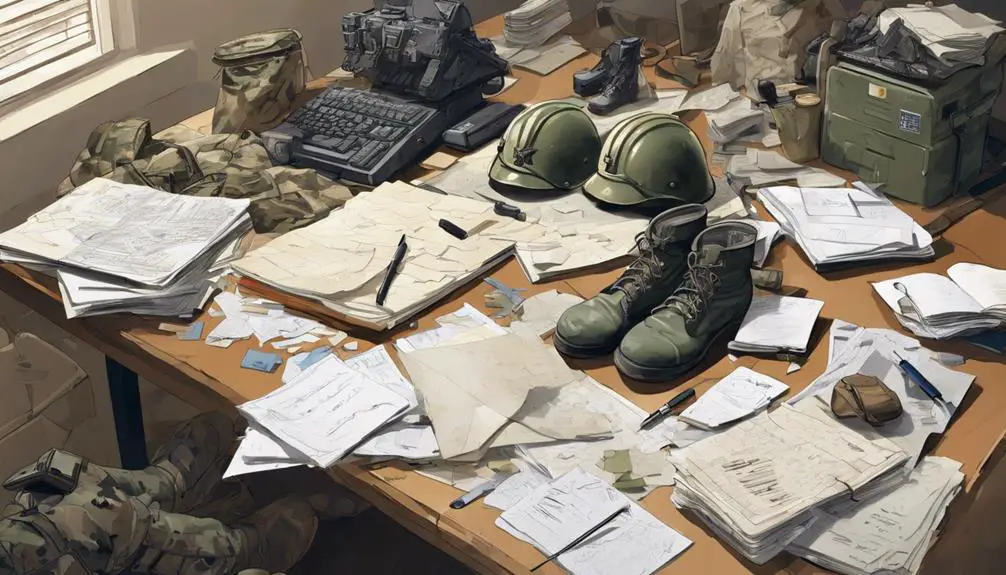
Understanding military jargon is crucial for effective communication and efficiency. Military lingo has evolved significantly over time, incorporating new terms and phrases to reflect changing technologies, tactics, and cultural influences.
Deciphering military jargon requires a fundamental understanding of its roots and evolution. Military lingo often draws from popular culture, integrating phrases and terms from movies, TV shows, and music. For example, the expression 'boots on the ground' originated from the 1991 Gulf War and has since become a common phrase in both military and civilian contexts.
Comprehending military jargon also entails recognizing its nuances and subtleties. It is important to differentiate between formal and informal language, as well as between various branches and units. Remember, military jargon is not only about using the 'right' words; it is about conveying respect, professionalism, and clarity in your communication.
Slang for Ranks and Roles
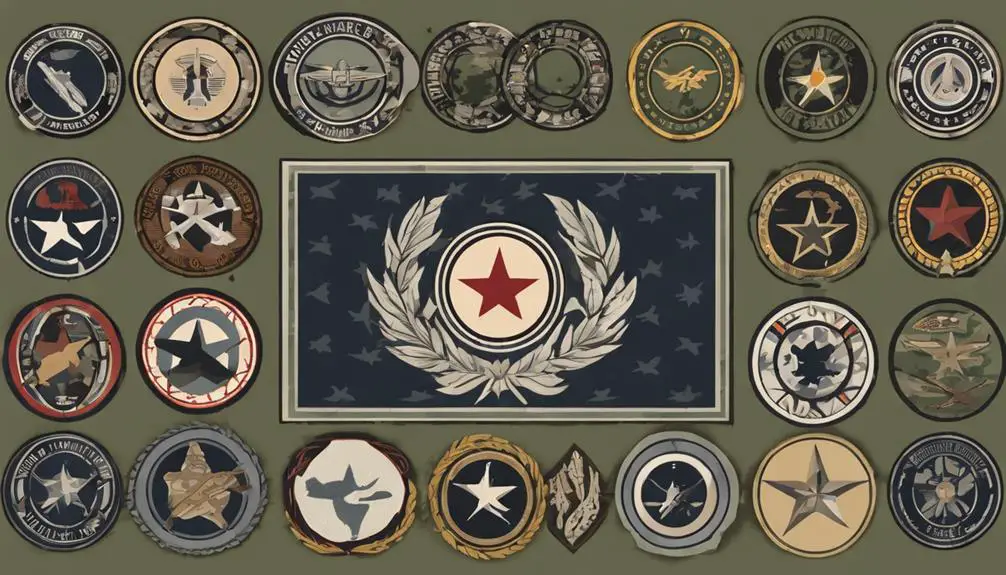
In the military, newcomers quickly learn that ranks and roles have their own set of slang terms, which can greatly vary depending on the branch, unit, and even geographic location. You'll soon discover that each branch has its unique lingo for ranks and roles. For instance, in the Army, a Captain is often referred to as a 'Six,' while in the Navy, an Ensign is called a 'Boot Ensign.'
Officer lingo and enlisted dialect differ greatly. You'll hear Officers being referred to as 'Sir' or 'Ma'am,' while Enlisted personnel are addressed by their rank or last name. In some units, a Sergeant is called a 'Sarge,' while in others, they're referred to as 'Staff' or simply 'Sergeant.'
It's essential to learn these slang terms to better communicate with your team and avoid confusion. Familiarize yourself with the specific lingo used in your unit and branch to ensure a smoother shift into military life. Remember, understanding military slang is vital to building camaraderie and respect among your peers.
Time and Schedules in Military Speak
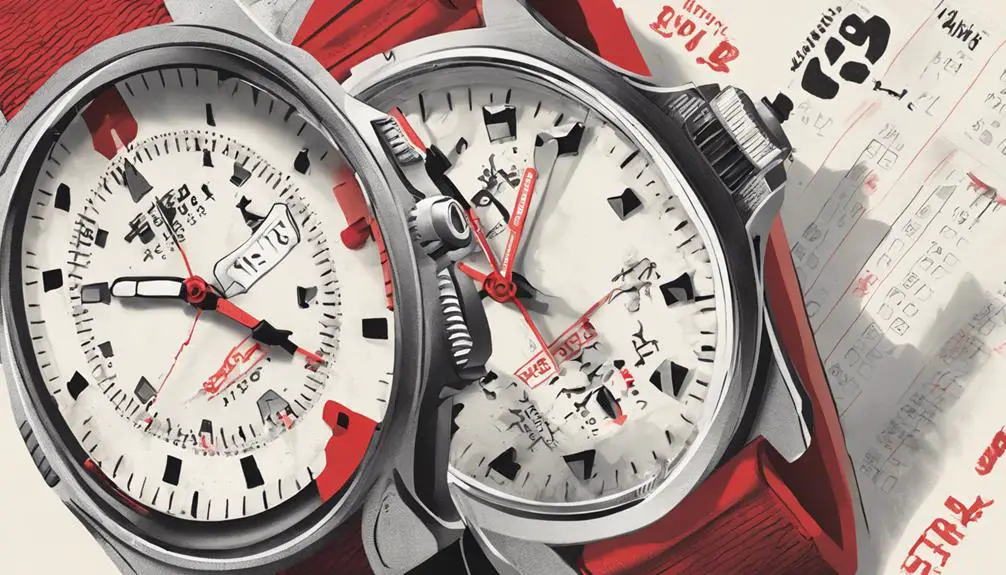
Mastering military ranks and roles is crucial, as is grasping time and schedules in military terminology. This knowledge is vital as it can significantly impact your daily routine. In the military, time is commonly denoted using a 24-hour clock, where midnight is 0000 hours and noon is 1200 hours. You may also hear 'zero dark thirty' used to indicate 0300 hours, which corresponds to 3:00 a.m. on a regular clock.
Regarding schedules, you will come across 'hurry up and wait' timelines, where you are required to swiftly prepare for a task or mission, only to wait for further instructions or delays. While this can be frustrating, it is imperative to remain adaptable and adjust to changing circumstances. Furthermore, you will need to comprehend how to interpret and formulate military-style timelines, which incorporate a mix of dates, times, and abbreviations to communicate intricate schedules and deadlines. By mastering these aspects of military terminology, you will be better prepared to navigate the fast-paced and dynamic military environment.
Frequently Asked Questions
Can I Use Military Slang in Formal Military Communications?
You might think using military slang in formal communications is a no-go, but what if you're unsure? In formal military communications, it's generally best to avoid slang, maintaining a professional tone. However, there are exceptions where using specialized terminology or acronyms is necessary for clarity. Check your unit's writing guidelines for slang inclusions, as they may permit specific terms to convey complex ideas efficiently.
Are There Regional Differences in Military Slang?
You'll find that dialectal variations in military slang exist across different regions. Geographical influences play a significant role in shaping local dialects, with certain terms and phrases being more prevalent in specific areas. For instance, coastal regions might use nautical-inspired slang, while inland areas might adopt terms related to land-based operations. These regional differences can sometimes lead to misunderstandings, but they also add to the richness of military slang.
How Do I Know When to Use Formal Versus Informal Language?
When weighing between formal and informal language, you'll want to take into account contextual cues. Pay attention to the setting, audience, and purpose of your communication. Look for tone indicators like formal titles, professional language, or a more casual tone. If you're unsure, err on the side of formality, especially in professional or unfamiliar settings. Remember, it's always better to be respectful and adapt to the situation.
Can Civilians Use Military Slang in Everyday Conversation?
You might wonder if it's okay to throw around military slang in casual conversations or social media posts. The answer is, it depends. While using military lingo in everyday chats can add flavor to your language, it's crucial to take into account your audience and context. If you're not a vet or closely tied to the military, using military slang might come across as inauthentic or even disrespectful. Use it sparingly and thoughtfully to avoid confusion or offense.
Are There Any Cultural or Historical Roots to Military Slang?
As you delve into the world of slang, it's like peeling an onion – each layer reveals a deeper meaning. When exploring the cultural and historical roots of military slang, you'll find that etymology plays a significant role. Historical influences, such as ancient languages and cultural exchange, have shaped the way military personnel communicate. For instance, the term 'boots' originated from the early 20th-century naval slang, where new recruits were called 'boot campers.'

